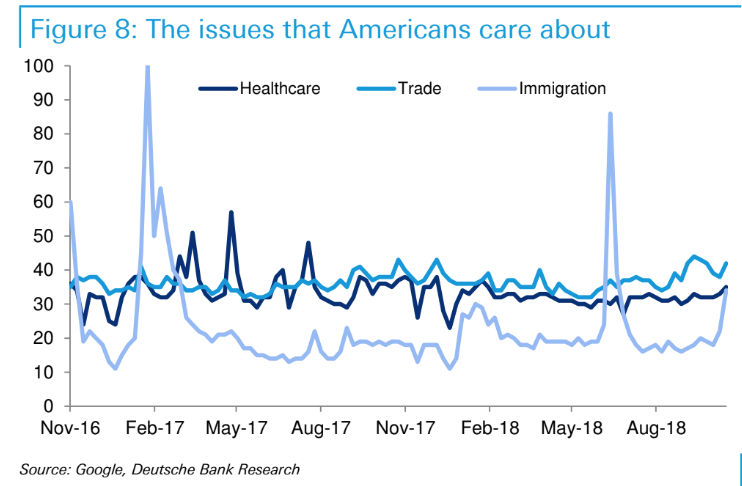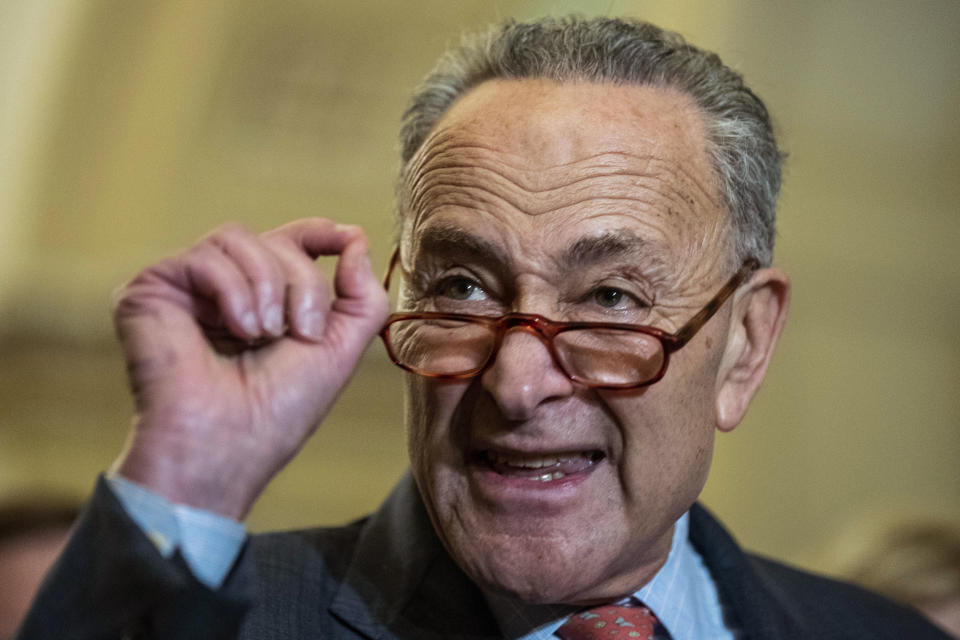A Democrat-controlled House may actually fuel the U.S.-China trade war
Trade may not be the top issue among voters’ minds, but it’s been haunting investors. The S&P 500 is down almost 7% and the Nasdaq is down over 8% in the past month, trade and tariff headlines have played a key role in weighing down markets.
President Donald Trump has calmed the markets by announcing progress with China’s President Xi Jinping during their phone call last week. While it’s widely predicted that the Democrats will win a majority in the House of Representative after Tuesday’s midterm elections, it’s unlikely to change the administration’s tough trade negotiation with China. A House controlled by Democrats may even push for a further escalation of a trade war with Beijing, according to experts.
President Trump’s power in trade

U.S. presidents have enormous power in shaping foreign policy, including trade. While the legislative branch can act as a check on the president in some informal ways, like host hearings, analysts don’t see them bringing fundamental changes to trade negotiations.
“We think it is important to keep in mind that Congress doesn’t have much of an ability to control trade policy, where the Oval Office has wide-reaching powers to act unilaterally,” analysts at RBC Equity wrote in a note last week. “Whatever happens with the midterms, we expect the president to keep pushing his trade agenda.”
That means more tariffs on China may be on its way. The administration is reportedly ready to impose tariffs on more imported goods from China if the meeting with Xi produces no major progress. While the U.S. business community has voiced their concerns, neither party would likely change the imposition of tariffs once Trump makes up his mind.
Economists at Goldman Sachs believe the lack of political consensus on appropriate trade policy further reduces the likelihood that either party would enact legislation to resolve the ongoing trade tensions. A divided Congress may even push the White House to take a look at other things.
“With little prospect for legislative action, the White House might become even more focused on issues where it can act unilaterally, like tariffs,” Goldman Sachs wrote in a note in August.
Some Democrats may support an escalation

While Trump’s tariffs on steel and aluminum from allies received mixed reactions, his push on China to demand fairer trade practices has been met with bipartisan approval. The general tone from Congress is to take a hard line with China, according to Gary Hufbauer of the Peterson Institute for International Economics, who expects tensions with Beijing to heat up in the next few months.
Hufbauer said a Democrat-controlled House will try to restrain and force Trump to consult with Congress, which doesn’t mean any relaxation. “They will say they could have done it differently, their tactics would be better and so forth. But not a change in their tone [to Beijing].”
Democratic leaders may even end up being very critical of any type of relaxation on China trade if Trump begins to reach an agreement with Beijing. Senate Minority Leader Chuck Schumer (D-NY), for example, has accused China of stealing U.S. intellectual property and praised Trump’s tariffs. In July, the U.S. Commerce Department signed an agreement with ZTE to lift the ban on it doing business with U.S. companies. Schumer called it “a direct betrayal of Trump’s promise to be tough on China and protect American workers.”
“Some Democratic politicians have expressed support for President Trump’s trade war, so they may actually support an escalation against China,” Deutsche Bank strategist Quinn Brody wrote in a report last week.
Krystal Hu covers technology and trade for Yahoo Finance. Follow her on Twitter.
Read more:
Americans who say their finances haven’t improved mostly blame Trump
Why you won’t feel much pain from Trump’s tariffs this holiday season
Amazon bought Whole Foods a year ago. Here’s what has changed


